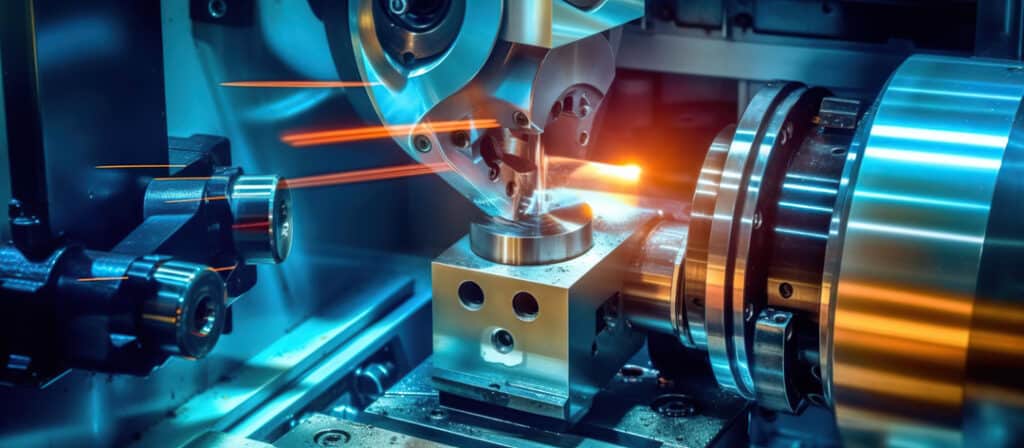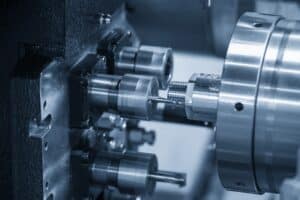Precision machining, an essential process in modern manufacturing, has undergone significant evolution over the years. From traditional methods to cutting-edge technologies, the industry has witnessed remarkable advancements. This article explores the trends shaping the evolution of high-precision machining and its impact on various sectors.
1. Introduction to Precision Machining
Precision machining involves the use of specialized tools and machinery to fabricate intricate components with high accuracy and tight tolerances. It plays a crucial role in industries such as aerospace, automotive, medical, and electronics.
2. Traditional Machining Techniques
Turning
Turning is a fundamental machining process that involves rotating a workpiece while a cutting tool removes material to create cylindrical shapes. This technique has been the cornerstone of machining for centuries.
Milling
Milling utilizes rotary cutters to remove material from a workpiece, producing complex shapes and features. It offers versatility and precision, making it indispensable in manufacturing.
Drilling
Drilling involves creating holes in a workpiece using specialized drill bits. It is a common machining operation essential for various applications.
3. The Emergence of Precision Machining
With the demand for higher precision and efficiency, traditional machining methods gave way to precision machining. This shift marked a significant milestone in the manufacturing industry, enabling tighter tolerances and improved quality control.
4. Computer Numerical Control (CNC) Machining
CNC machining revolutionized precision manufacturing by automating the machining process. It utilizes computer-controlled systems to execute precise tool movements, resulting in consistent and accurate parts production.
Advantages over Traditional Methods
CNC machining offers several advantages over traditional methods, including higher productivity, reduced lead times, and enhanced repeatability. It allows for complex geometries and intricate designs to be manufactured with ease.
Applications and Industries
CNC machining finds applications in various industries, including aerospace, automotive, healthcare, and consumer electronics. Its versatility and efficiency make it indispensable for prototyping and large-scale production alike.
5. Automation and Robotics in Precision Machining
Automation and robotics are transforming the landscape of precision machining, enabling unmanned operation and lights-out manufacturing. Robotic systems handle tasks such as loading/unloading workpieces, tool changing, and quality inspection, increasing productivity and efficiency.
6. Advancements in Tooling and Materials
Advancements in tooling technology and materials have further enhanced the capabilities of precision machining. Cutting-edge tools and high-performance materials enable faster machining speeds, improved surface finishes, and extended tool life.
7. Integration of Additive Manufacturing
The integration of additive manufacturing processes, such as 3D printing, with precision, opens new possibilities for design optimization and part consolidation. Hybrid manufacturing systems combine the strengths of both subtractive and additive processes, offering flexibility and innovation.
8. Internet of Things (IoT) in Precision Machining
IoT technologies enable connectivity and data exchange between machines, facilitating real-time monitoring and predictive maintenance in precision machining operations. Sensor-equipped machines gather data on performance metrics, helping manufacturers optimize processes and minimize downtime.
9. Data Analytics and Predictive Maintenance
Data analytics tools analyze vast amounts of machining data to identify trends, patterns, and potential issues. Predictive maintenance algorithms anticipate equipment failures before they occur, enabling proactive maintenance and minimizing disruptions to production.
10. Sustainability in Precision Machining
Sustainability is becoming increasingly important in precision machining, with manufacturers seeking eco-friendly solutions and practices. Recycling of materials, energy-efficient machining processes, and waste reduction initiatives contribute to a greener and more sustainable industry.
11. Skills and Workforce Development
As precision machining technologies evolve, the demand for a skilled workforce also grows. Training programs and educational initiatives are essential for developing the next generation of machinists and engineers proficient in advanced manufacturing techniques.
12. Market Trends and Growth Opportunities
The precision machining industry is experiencing steady growth, driven by technological advancements and increasing demand for customized components. Emerging markets and sectors such as medical devices, renewable energy, and telecommunications present lucrative expansion opportunities.
13. Challenges Facing the Industry
Despite its many benefits, the precision machining industry faces challenges such as rising production costs, global competition, and shortage of skilled labor. Addressing these challenges requires innovation, investment in training, and strategic partnerships.
14. Future Outlook and Innovations
The future of precision machining holds exciting possibilities, with continued advancements in automation, digitalization, and materials science. Innovations in areas such as nanotechnology, quantum computing, and sustainable manufacturing are poised to shape the industry's trajectory.
15. Conclusion
In conclusion, the evolution of precision machining is driven by a convergence of technological, economic, and societal factors. Shamrock Precision Machine stands at the forefront of this evolution, leveraging cutting-edge technologies and expertise to deliver innovative solutions to its customers. As the industry continues to evolve, Shamrock remains committed to pushing the boundaries of precision manufacturing and shaping the future of the industry.


